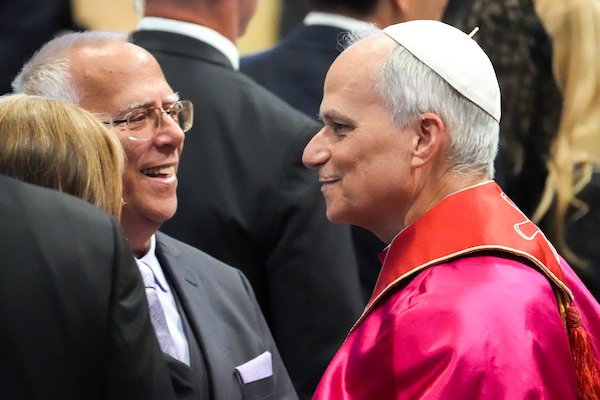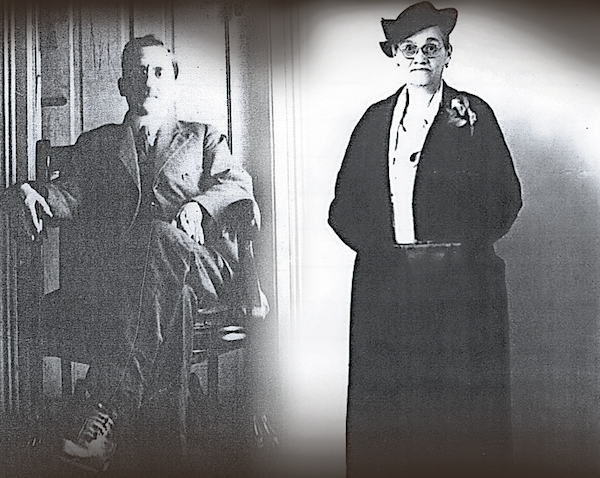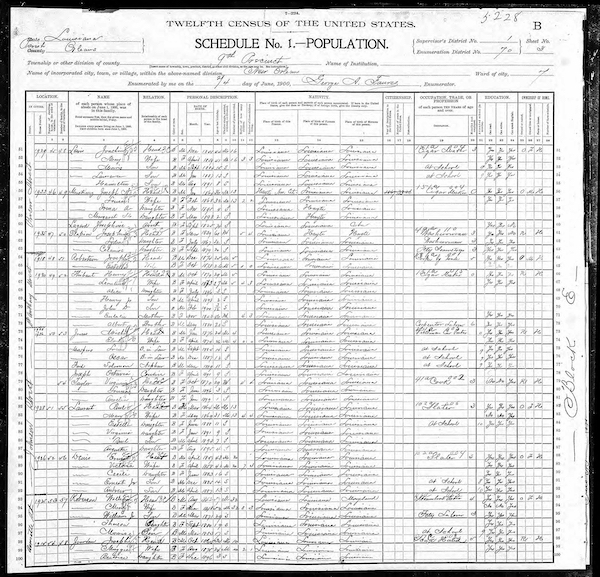
PROSPECT HEIGHTS — Many Catholics around the world were stunned when Cardinal Robert Francis Prevost, an American, was elected pope. When his Creole roots were later revealed, the surprise only grew — especially among Haitian Catholics.
For many, including Floranel Joseph, a parishioner of St. Jerome Church in East Flatbush, the election of a pope with Creole roots is significant.
“It’s something that can’t be ignored. There’s a cultural pride behind this,” Joseph said. “This can break all sorts of stereotypes and can offer a kind of representation of black people in general in the Catholic Church.”
Although Pope Leo XIV has roots in Chicago, his lineage also has historical ties to Louisiana, where both of his maternal grandparents lived. State archives show the pope’s maternal grandmother was listed as being from New Orleans, while his grandfather was identified as a native of Haiti.

Father Hilaire Belizaire, pastor at St. Jerome and head of the diocese’s Haitian Apostolate, said he first learned of Pope Leo’s ancestry when the pope’s brother, John Prevost, mentioned it during an interview. “When I read about his family’s genealogy, I realized it was true,” Father Belizaire said. “My feeling … went from joy to pride, and of course I was happy to share that with the congregation.”
RELATED: Records Trace Pope Leo XIV’s Ancestry to Black, Creole Roots
On May 18, Haitian Flag Day coincided with Pope Leo’s inaugural Mass. Father Belizaire celebrated the occasion with his parish, acknowledging the alignment as a coincidence, but one that brought joy.
“They were very happy — overjoyed to hear the news,” he said. “In fact, one of the elected officials who spoke at the end of Mass suggested that this could be a sign [that] God is saying something to the world, choosing someone who is a white American, but with a Peruvian and Haitian background.

“People just received this message so well, they were clapping nonstop.”
Father Saint Charles Borno, parochial vicar for Blessed Sacrament in Jackson Heights, acknowledged the significance of the new pontiff’s Haitian connection.
“Any time we can even associate someone with Haiti, it’s a blessing for us,” Father Borno said. “It’s a big deal for us. Just like Pope John Paul II for the Polish, for us it is something special.” Father Borno added that he would like Pope Leo to visit
Haiti, just as St. John Paul II did.
“My hope is that the presence of Pope Leo or his involvement in helping the people in the Church in Haiti can bring many changes in Haiti,” he said.

were listed on several census documents as black. (Photo: Courtesy of Chris Smothers/Unearthing Your Roots)
Norma Felix, a parishioner at the Co-Cathedral of St. Joseph in Prospect Heights, said she wants Pope Leo to take a stance on immigration in the United States, especially after a protected status extension for Haitians was revoked by the Trump administration.
RELATED: Haitian Parishioners Returning to Mass After White House’s Migrant Order
“We Haitians, many of us don’t feel that the Catholic Church is there supporting us as we expected,” Felix said. “We have a pope now who has lived with people in another country, who has experienced living as an immigrant or as a missionary.”
Joseph said he hopes Pope Leo turns out ot be a “people’s pope,” similar to the late Pope Francis. Although he is happy to learn of the pope’s Creole roots, he will be “most proud” to see how he responds to people in need globally.
“As soon as he became pope, it felt like the light was shining,” Joseph said. “As the pope, he is not an American pope, but he’s the pope of the world.”
